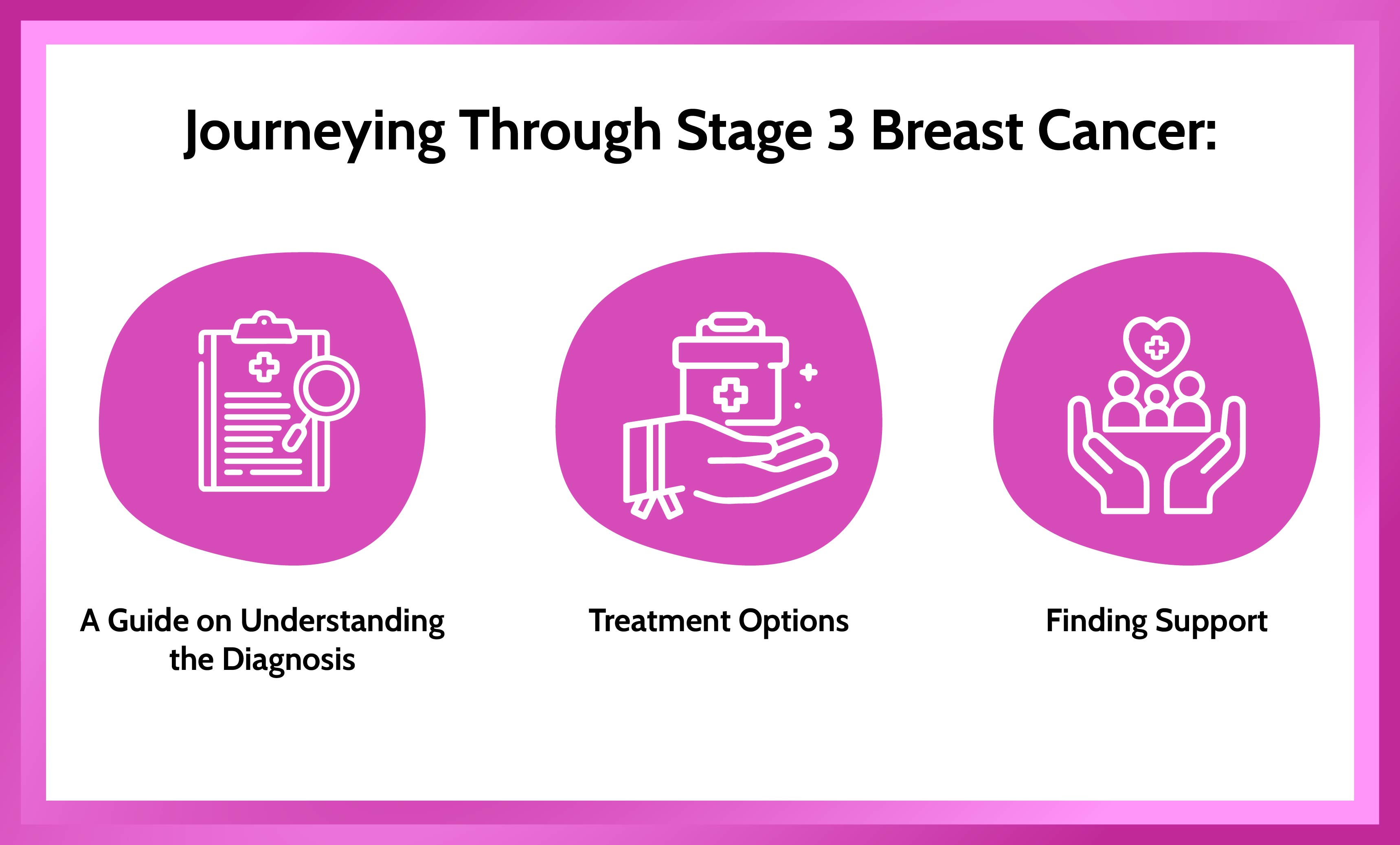
Navigating a breast cancer diagnosis can be overwhelming, especially when it’s Stage 3. This stage signifies an advanced form of breast cancer, but it’s important to remember that many treatment options and support resources are available. This comprehensive guide aims to provide a clear understanding of Stage 3 breast cancer, explore the various treatment options, and offer guidance on finding the support needed to journey through this challenging time.
Estrogen and progesterone, two key hormones in the female reproductive system, play a central role in developing breast cancer. These hormones help breast tissue to grow and develop, but an imbalance or prolonged exposure to high levels can increase the risk of breast cancer.
The diagnosis process for Stage 3 breast cancer typically involves:
Treatment for Stage 3 breast cancer often involves a combination of therapies, tailored to each patient's specific situation. The primary treatment options include:
Treatment can cause various side effects, including fatigue, nausea, hair loss, and emotional distress. It’s crucial to:
The emotional and psychological toll of Stage 3 breast cancer can be significant. Support can come from various sources:
Maintaining a healthy lifestyle can positively impact your overall well-being during treatment:
Facing Stage 3 breast cancer is undeniably challenging, but with the right information, treatment plan, and support system, it is possible to navigate this journey with strength and resilience. Remember to prioritize your health, seek support when needed, and stay informed about the latest advancements in breast cancer treatment. You are not alone in this journey, and there is a community ready to support you every step of the way.